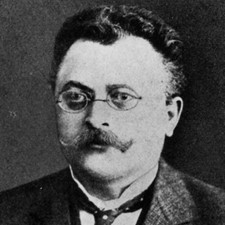
1874 - 1938
Ernst August Wagner
Summary
Name:
Years Active:
1913Birth:
September 22, 1874Status:
DeceasedClass:
Mass MurdererVictims:
14Method:
Stabbing / Arson / ShootingDeath:
April 27, 1938Nationality:
Germany
1874 - 1938
Ernst August Wagner
Summary: Mass Murderer
Name:
Ernst August WagnerStatus:
DeceasedVictims:
14Method:
Stabbing / Arson / ShootingNationality:
GermanyBirth:
September 22, 1874Death:
April 27, 1938Years Active:
1913bio
Ernst August Wagner was born on September 22, 1874, in Eglosheim, near Ludwigsburg, Germany. He was the ninth of ten children in his family, along with one half-brother and one half-sister. Tragically, most of his siblings died at a young age. By 1913, only two sisters and one brother remained. When Ernst was only one day old, his father passed away. His father was a poor peasant with drinking problems. After his death, the family could not keep their farm due to debts and had to sell it.
Wagner's mother struggled to support her family by running a small shop. She later remarried, but her new marriage ended in divorce when Ernst was just seven years old. This was partly due to her affairs. During his childhood, Ernst was known in the village as the "widow's boy." He faced depression and had suicidal thoughts. Despite these challenges, he was intelligent and did well in school, earning a public stipend. This financial support allowed him to pursue his studies and eventually become a teacher.
He began his teaching career in Württemberg, working as an auxiliary teacher from 1894 to 1901. However, he faced difficulties at work. In April 1900, he was suspended for six months due to severe nervousness and irritability. After this, he spent two months in Switzerland, during which he attempted to sell some of his poems to newspapers. By July 1901, he got a teaching position in Mühlhausen an der Enz.
During this time, he engaged in an affair with Anna Friedericke Schlecht, the daughter of a local innkeeper. Their relationship led to a pregnancy, and Anna gave birth to a daughter named Klara in spring 1902. Later that year, Ernst's mother died, who had been a significant support in his life. He continued to work as a teacher but was often unhappy. In December 1903, Ernst and Anna married due to pressure from family and society, especially because of their daughter.
Over the next few years, Anna had four more children, but Ernst was not pleased with these births. He often complained about the financial burden of his growing family. Around 1906 or 1907, he became increasingly paranoid, fearing that others knew about a past incident where he had harmed an animal while drunk. This paranoia grew, and he began to plan revenge on the people he felt had mocked him for that act.
Ernst bought several guns and practiced his shooting skills in nearby forests. He also requested several school transfers, ultimately beginning a new job in Degerloch in May 1912. Despite his new position, he continued to feel that people knew about his past actions and planned to act on his feelings of persecution. He wrote letters outlining his thoughts in the days leading up to the events that would follow.
murder story
On 4 September 1913, Ernst August Wagner committed a series of murders that began in the early morning hours. He first attacked his wife, Anna, by hitting her on the head with a blackjack, leaving her unconscious. He then stabbed her multiple times in the throat and chest. After killing his wife, he moved to the bedrooms of his four children, Klara, Elsa, Robert, and Richard, and stabbed each of them as well. All of his victims, including his wife and children, died from massive blood loss.
After covering the bodies with blankets, Wagner changed out of his bloody clothes and washed himself. He packed a bag that included three guns and ammunition. He left a note informing others that the family was on a trip. He rode his bicycle to a nearby train station and traveled to Ludwigsburg.
Later that day, he went to his brother's house but found him not at home. While there, he hid some of his ammunition in the garden. He then took a train to Bietigheim and sent letters to various individuals, including relatives and a philosopher.
By the evening, he traveled to Mühlhausen an der Enz. There, he attempted to cut the telephone lines but gave up because of the weather. Instead, he set fire to several barns and then began shooting at people on the streets. Wagner fired about 80 shots, killing eight people instantly and wounding several others.
He continued his violence until he was confronted by villagers who were able to subdue him, striking him multiple times. Despite being left for dead, he was found by a police officer hours later and was still alive. After regaining consciousness, he confessed to his earlier crimes and expressed a desire to die.
Wagner was taken to a hospital, where he received treatment for his injuries, including the amputation of his left forearm. Following these events, he was found not guilty by reason of insanity and was placed in an asylum. He spent the remaining years of his life there, eventually passing away in 1938 from tuberculosis.